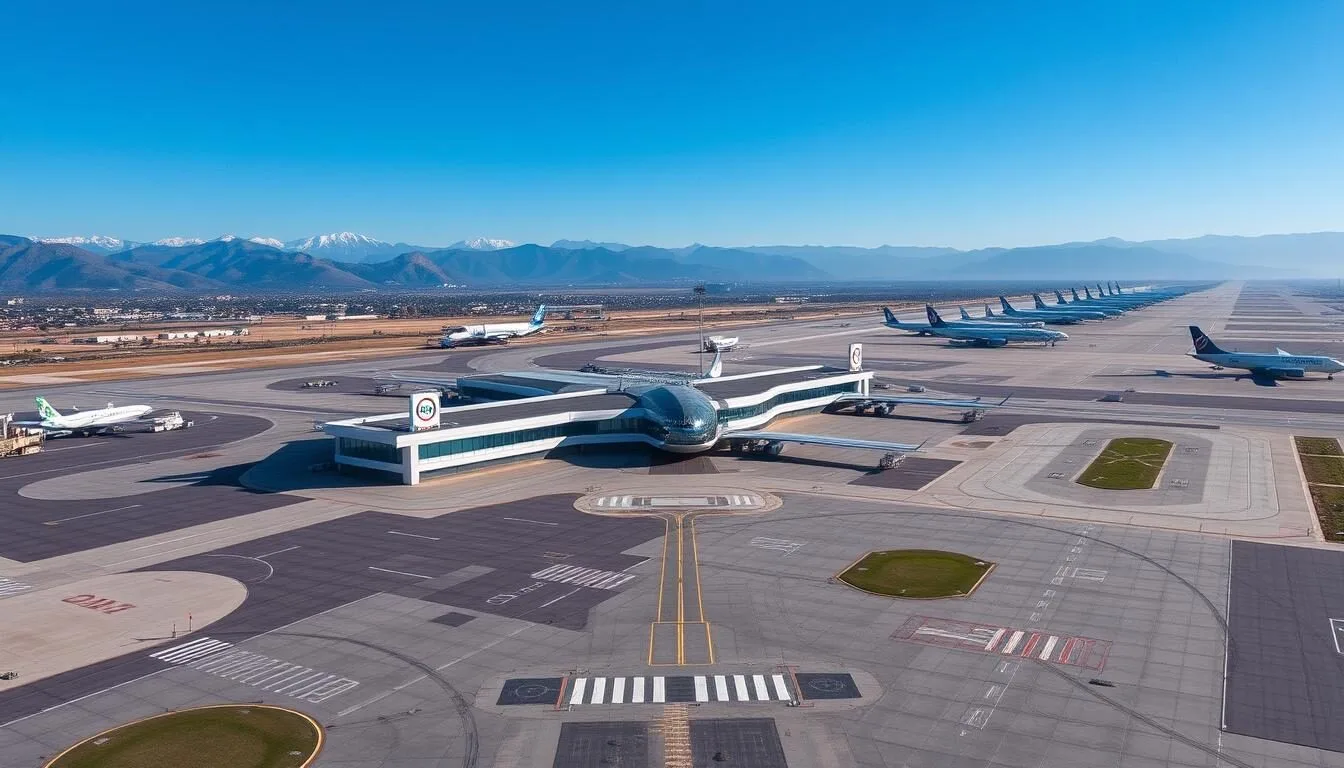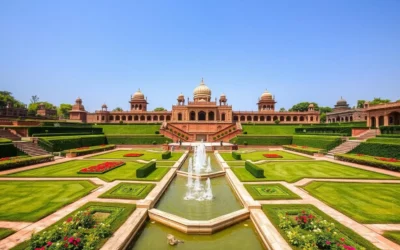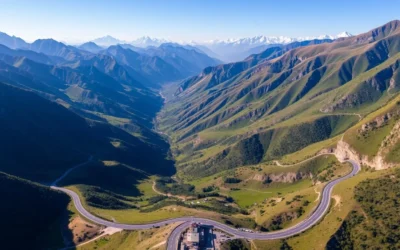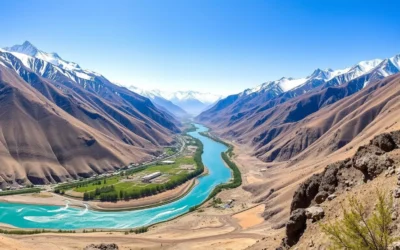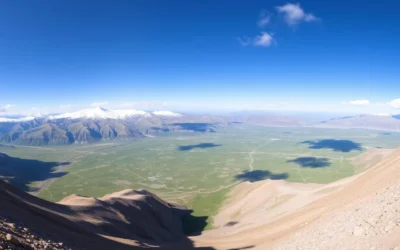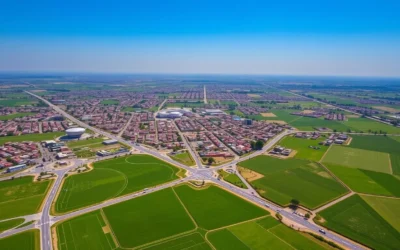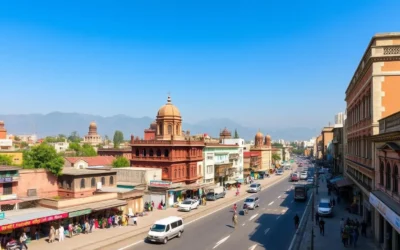✓ Accommodations✓ Flights✓ Rental Cars
Sialkot, Pakistan produces over 70% of the world’s hand-stitched soccer balls, making this industrial hub a surprising powerhouse in global sports manufacturing. This northern Punjab city combines a rich cultural heritage dating back 5,000 years with modern industrial prowess, creating a unique destination where visitors can explore ancient forts, visit the birthplace of philosopher-poet Allama Iqbal, and witness the craftsmanship behind sporting goods used in international competitions including the FIFA World Cup.
Getting to Sialkot, Pakistan
Sialkot boasts Pakistan’s first privately owned public airport, Sialkot International Airport, which offers direct flights to several Middle Eastern destinations including Bahrain, Oman, Qatar, Saudi Arabia, and the United Arab Emirates. International travelers typically connect through major hubs like Dubai or Doha. The airport is located approximately 20 kilometers from the city center near Sambrial.
Alternatively, you can fly into Lahore’s Allama Iqbal International Airport, which has more international connections, and then travel approximately 120 kilometers by road to Sialkot. The journey takes about 2-3 hours depending on traffic conditions.
Find Flights to Sialkot
Compare prices and book your flights to Sialkot or nearby airports with our trusted partner.
For travelers already in Pakistan, Sialkot is well-connected by road to major cities. The Sialkot-Lahore Motorway (M11) provides a convenient route from Lahore. Regular bus services also operate between Sialkot and other major cities including Islamabad, Rawalpindi, and Gujranwala.
The Sialkot Junction railway station connects the city to Pakistan’s rail network via the Wazirabad–Narowal Branch Line. The Allama Iqbal Express runs daily between Sialkot and Karachi via Lahore.
Planning Your Journey to Sialkot
When planning a trip to Sialkot, it’s advisable to allocate at least 2-3 days to fully explore the city and its surroundings. This industrial hub offers a fascinating mix of historical sites, manufacturing facilities, and cultural attractions that deserve your time and attention.
Sialkot’s unique blend of industrial prowess and rich heritage makes it unlike any other destination in Pakistan. Where else can you see ancient forts in the morning and watch world-class sporting goods being handcrafted in the afternoon?
Before traveling to Pakistan, ensure you have the necessary visa. Most nationalities require a visa to enter Pakistan, which can be obtained through the Pakistani embassy or consulate in your country. Some travelers may be eligible for Pakistan’s e-visa system, which simplifies the application process.
It’s also recommended to check travel advisories for Pakistan and specifically for the Punjab region before planning your trip. While Sialkot is generally considered one of the safer cities in Pakistan, staying informed about current conditions is always prudent.
Essential Items to Pack
- Modest clothing that covers shoulders and knees (especially important for women)
- Comfortable walking shoes for exploring the old city
- Sun protection (hat, sunglasses, sunscreen)
- Basic medications and a small first-aid kit
- Power adapter (Pakistan uses type C, D, and G plugs)
- Cash in Pakistani Rupees (ATMs are available but not always reliable)
- Printed copies of your travel documents
Consider hiring a local guide to enhance your experience, especially when visiting historical sites and manufacturing facilities. Many sports goods factories offer tours, but these often need to be arranged in advance through your hotel or a local travel agency.
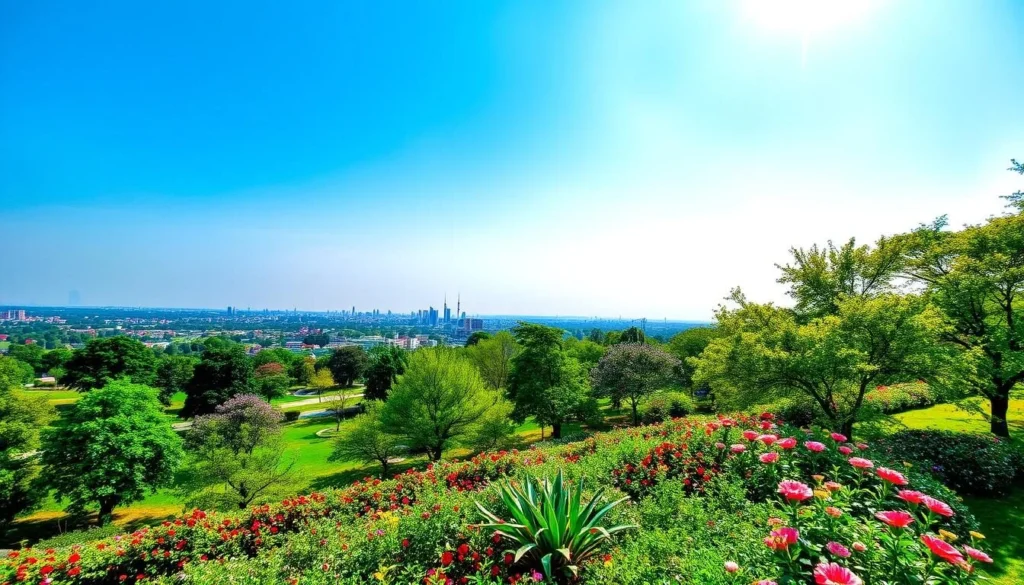
Best Time to Visit Sialkot
Sialkot experiences a humid subtropical climate with distinct seasons. The best time to visit is during the spring (March to April) and autumn (October to November) months when the weather is most pleasant for sightseeing and outdoor activities.
| Season | Months | Temperature Range | Conditions | Recommendation |
| Spring | March-April | 19°C to 32°C (66°F to 90°F) | Mild temperatures, occasional rain | Highly Recommended |
| Summer | May-September | 25°C to 40°C (77°F to 104°F) | Hot and humid, monsoon rains (July-August) | Not Recommended |
| Autumn | October-November | 15°C to 30°C (59°F to 86°F) | Pleasant, cooling temperatures | Highly Recommended |
| Winter | December-February | 5°C to 19°C (41°F to 66°F) | Cool, occasionally cold, morning fog | Moderately Recommended |
Summer months (May to September) can be extremely hot and humid, with temperatures sometimes exceeding 40°C (104°F). July and August bring monsoon rains, which can cause flooding and disrupt travel plans. If you visit during summer, plan indoor activities during the hottest part of the day.
Winter (December to February) is generally mild during the day but can get quite chilly at night, with temperatures occasionally dropping to around 5°C (41°F). Morning fog is common during this season, which might affect visibility and transportation schedules.
Local Festivals and Events
Consider timing your visit to coincide with local festivals for a more immersive cultural experience:
- Eid celebrations (dates vary according to the Islamic calendar) – Experience the festive atmosphere with special prayers, feasts, and community gatherings
- Iqbal Day (November 9) – Commemorates the birth of national poet Allama Iqbal with cultural events and ceremonies
- Independence Day (August 14) – Vibrant celebrations with flag-hoisting ceremonies, parades, and cultural performances
- Defense Day (September 6) – Special significance in Sialkot due to its border location and role in the 1965 Indo-Pakistani War
Getting Around Sialkot
Navigating Sialkot is relatively straightforward, with several transportation options available to visitors. The city is not overwhelmingly large, which makes exploring different areas manageable.
Transportation Options
Auto-Rickshaws (Tuk-tuks)
These three-wheeled vehicles are abundant and provide an economical way to travel short distances within the city. Always negotiate the fare before starting your journey, as meters are rarely used. A typical ride within the city should cost between PKR 100-300 depending on the distance.
Taxis and Ride-Hailing Services
Traditional taxis are available, though ride-hailing apps like Careem operate in Sialkot and offer a more convenient option with predetermined fares. These services are particularly useful for longer journeys or when traveling with luggage.
Public Buses
Local buses connect different parts of the city and are very inexpensive. However, they can be crowded and routes may be difficult to understand for visitors. Bus stops are often unmarked, so ask locals for guidance if you choose this option.
Rental Cars
For maximum flexibility, especially if you plan to explore areas outside the city like Marala Headworks, renting a car is a good option. Both self-drive and chauffeur-driven cars are available through local agencies and hotels.
Explore Sialkot with Ease
Rent a car to discover Sialkot and its surroundings at your own pace. Compare prices and book online for the best deals.
Navigating the City
Sialkot is divided into several distinct areas:
- Old City – The historic center where you’ll find Sialkot Fort, Iqbal Manzil, and traditional bazaars
- Sialkot Cantonment – A well-planned area with wide streets, parks, and colonial-era architecture
- Industrial Zones – Located primarily on the outskirts, home to sports goods and surgical instrument factories
- Suburbs – Residential areas like Sambrial, Daska, and Pasrur
Travel Tip: Download an offline map of Sialkot before your trip, as internet connectivity may be inconsistent. Google Maps works reasonably well in the city, but having a physical map as backup is also recommended.
Walking is a viable option for exploring specific neighborhoods, particularly the old city with its narrow streets and historical sites. However, for longer distances or traveling between different areas, using transportation is advisable, especially during summer months when temperatures can be extremely high.
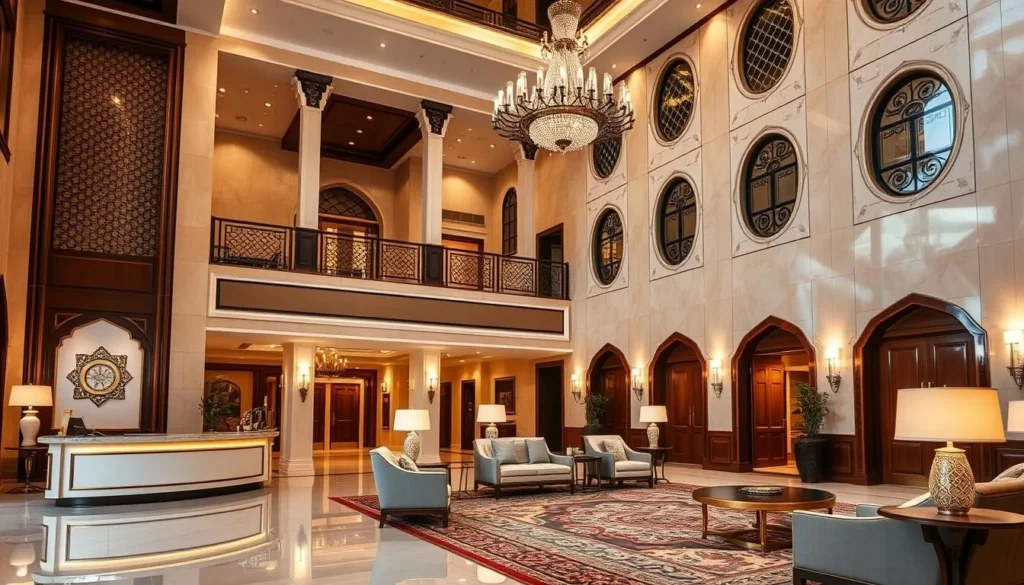
Where to Stay in Sialkot
Sialkot offers a range of accommodation options to suit different budgets and preferences. While the city doesn’t have the extensive hotel infrastructure of larger Pakistani cities like Lahore or Karachi, visitors can find comfortable places to stay, particularly in the Cantonment area and near the city center.
Recommended Areas to Stay
Sialkot Cantonment
The most upscale area with better infrastructure, wider roads, and a quieter atmosphere. This area houses most of the city’s higher-end hotels and is well-maintained with good security, making it ideal for foreign visitors.
City Center
Staying near the heart of Sialkot puts you close to historical attractions like Sialkot Fort and Iqbal Manzil. This area offers mid-range hotels and guest houses, with easy access to local markets and restaurants.
Near Airport
If you have an early departure or late arrival, consider staying near Sialkot International Airport in Sambrial. Several business hotels cater to travelers in this area, though you’ll be farther from the main attractions.
Accommodation Types
| Type | Price Range (USD) | Features | Best For |
| Luxury Hotels | $80-150 | Air conditioning, restaurants, business centers, Wi-Fi, room service | Business travelers, comfort-seeking tourists |
| Mid-range Hotels | $40-80 | Clean rooms, basic amenities, sometimes with restaurant | Budget-conscious travelers, short stays |
| Guest Houses | $20-40 | Simple accommodations, often family-run | Budget travelers, authentic local experience |
| Corporate Accommodations | Varies | Long-term stays, often with kitchen facilities | Business visitors on extended stays |
Find Your Perfect Stay in Sialkot
Compare hotels, guest houses, and other accommodation options to find the perfect place for your Sialkot adventure.
Booking Tip: During business conferences or major sporting events, accommodations in Sialkot can fill up quickly. It’s advisable to book well in advance, especially if you’re planning to visit during the peak travel seasons of spring and autumn.
Most hotels in Sialkot cater primarily to business travelers, as the city is an important industrial hub. This means you can expect reliable Wi-Fi, business facilities, and English-speaking staff at most established properties. However, amenities like swimming pools and fitness centers are less common than in tourist-oriented destinations.
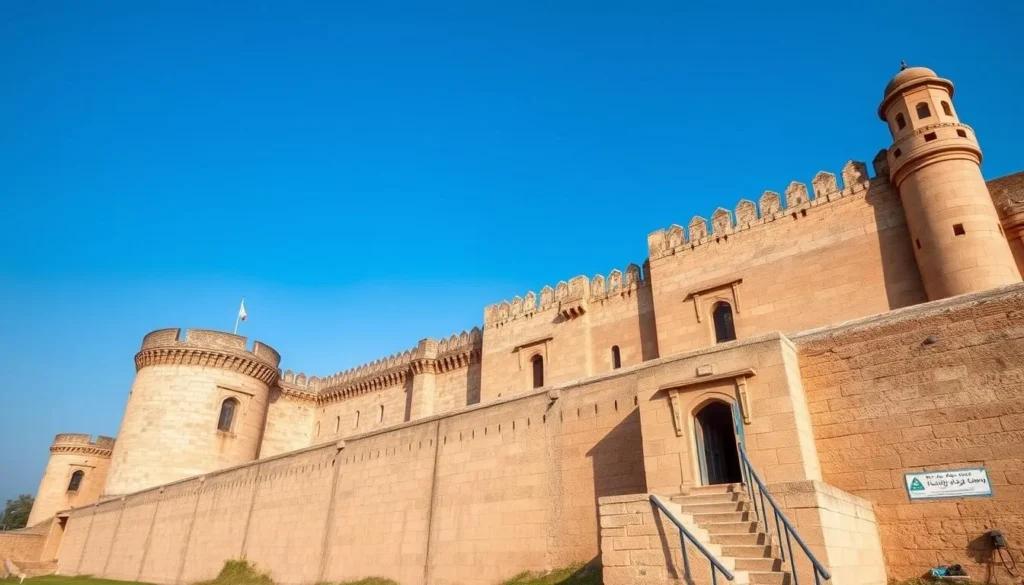
Top Attractions in Sialkot
Sialkot offers visitors a fascinating mix of historical sites, cultural landmarks, and industrial attractions. From ancient forts to the birthplace of national heroes, the city provides unique insights into Pakistan’s rich heritage.
Historical Sites
Sialkot Fort
This ancient fortress is believed to have been originally built by Raja Salivahan and later reconstructed in 1866. During British colonial rule, the fort sheltered Europeans during the 1857 War of Independence. While much of the original structure has deteriorated over time, it remains an important historical landmark that offers a glimpse into the region’s tumultuous past.
Iqbal Manzil
The birthplace and childhood home of Allama Muhammad Iqbal, Pakistan’s national poet and philosophical founder. This preserved house has been converted into a museum displaying Iqbal’s personal belongings, manuscripts, and a library of his works. For anyone interested in Pakistani history and culture, this is a must-visit site that provides insight into the life of one of the country’s most influential figures.
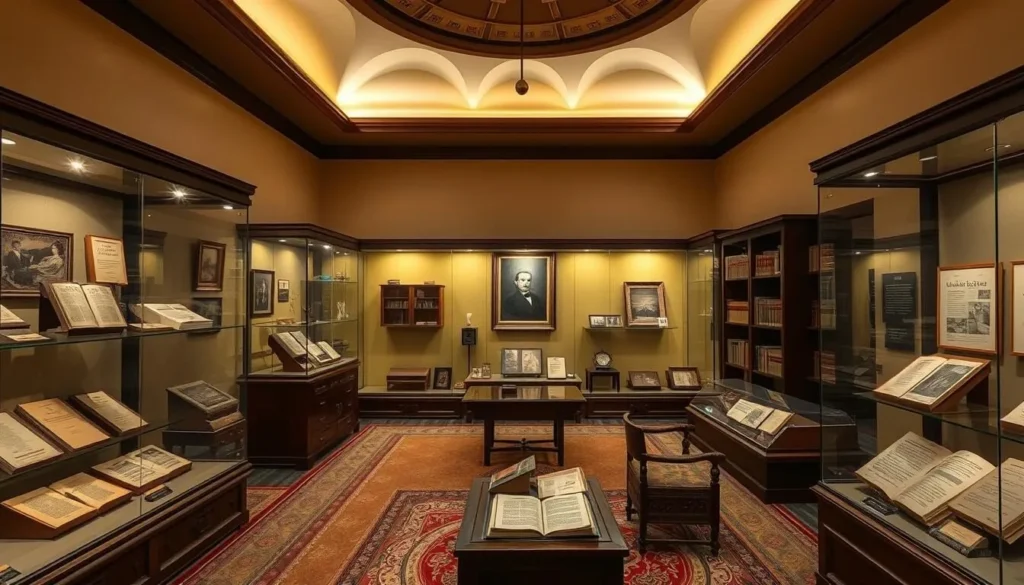
Religious and Cultural Sites
Shrine of Imam Ali-ul-Haq
This revered shrine honors a 13th-century Sufi saint who played a significant role in spreading Islam in the region. The shrine features traditional Islamic architecture and is an important spiritual center, particularly during the month of Muharram when a large fair is held. Visitors should dress modestly and remove shoes before entering.
Clock Tower (Ghanta Ghar)
Located in Saddar Bazaar of Sialkot Cantonment, this iconic clock tower was constructed in the early 1920s. It stands as a reminder of the colonial era and has become a recognizable landmark and meeting point in the city. The surrounding area is bustling with shops and eateries, making it a good starting point for exploring the commercial heart of Sialkot.
Industrial Tourism
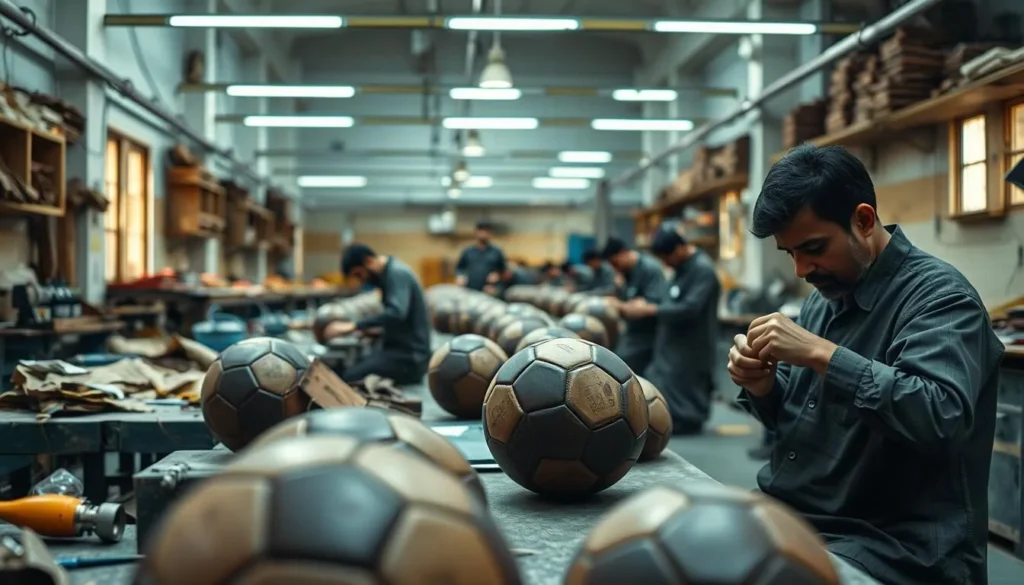
Sialkot’s global reputation as a manufacturing hub makes industrial tourism a unique attraction. Several factories offer tours where visitors can witness the craftsmanship behind world-famous products:
- Sports Goods Factories – Watch skilled artisans hand-stitch soccer balls used in international tournaments including the FIFA World Cup
- Surgical Instrument Manufacturers – Learn how Sialkot became a leading producer of high-quality surgical instruments exported worldwide
- Leather Workshops – Observe the production of premium leather goods, from sports equipment to fashion accessories
- Musical Instrument Makers – See traditional Pakistani instruments being crafted by hand
Visitor Tip: Factory tours typically need to be arranged in advance. Ask your hotel concierge or a local travel agency to help organize these visits. Most factories welcome visitors but have specific tour times and security protocols.
Natural Attractions
Marala Headworks
Located about 20 kilometers from Sialkot city, this barrage on the Chenab River is not only an important irrigation structure but also a scenic spot popular with locals. The area attracts numerous migratory birds, making it a good destination for birdwatching enthusiasts. The peaceful surroundings offer a welcome respite from the city’s hustle and bustle.
City Parks
Sialkot boasts several well-maintained parks including Gulshan-e-Iqbal Park, Jinnah Park, and Gulzar-e-Fatemah Park. These green spaces provide pleasant environments for relaxation and are popular with local families, especially in the evenings. Visitors can enjoy walking paths, landscaped gardens, and sometimes small amusement areas for children.
Explore Sialkot’s Cultural Heritage
Discover the rich history and unique attractions of Sialkot with guided tours that provide deeper insights into this fascinating city.
Book Cultural Tours
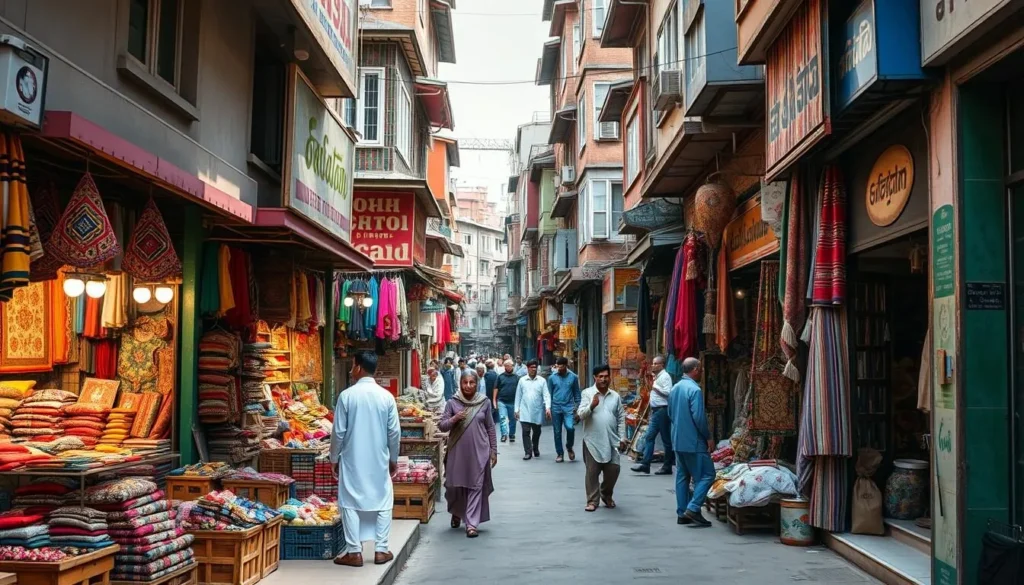
Unique Experiences in Sialkot
Beyond the standard tourist attractions, Sialkot offers several unique experiences that provide deeper insights into local culture and industry. These activities allow visitors to connect with the city’s distinctive character and heritage.
Sports Manufacturing Tours
Sialkot’s claim to fame as the producer of 70% of the world’s hand-stitched soccer balls makes factory tours a truly unique experience. Several major manufacturers offer behind-the-scenes looks at their production processes:
- Forward Sports – The company that produced footballs for the 2014, 2018, and 2022 FIFA World Cups offers guided tours showing their quality control and manufacturing processes
- Anwar Khawaja Industries – See how cricket bats, hockey sticks, and other sporting equipment are crafted
- Surgical Instrument Workshops – Witness the precision craftsmanship that goes into creating surgical tools exported to hospitals worldwide
These tours provide fascinating insights into the skilled craftsmanship and attention to detail that have made Sialkot’s products internationally renowned. Visitors can often purchase factory-direct items at discounted prices.
Traditional Bazaars
Immerse yourself in the vibrant atmosphere of Sialkot’s traditional markets:
Kashmiri Bazaar
One of the oldest markets in the city, offering a wide range of traditional goods including textiles, handicrafts, and local foods. The narrow lanes and historic architecture create an authentic shopping experience. This is an excellent place to find traditional Pakistani clothing, especially embroidered items.
Saddar Bazaar
Located in the Cantonment area, this more modern market offers a mix of traditional and contemporary goods. Here you’ll find leather products, sporting goods, and surgical instruments at retail prices. The area around the Clock Tower is particularly lively and offers good opportunities for photography.
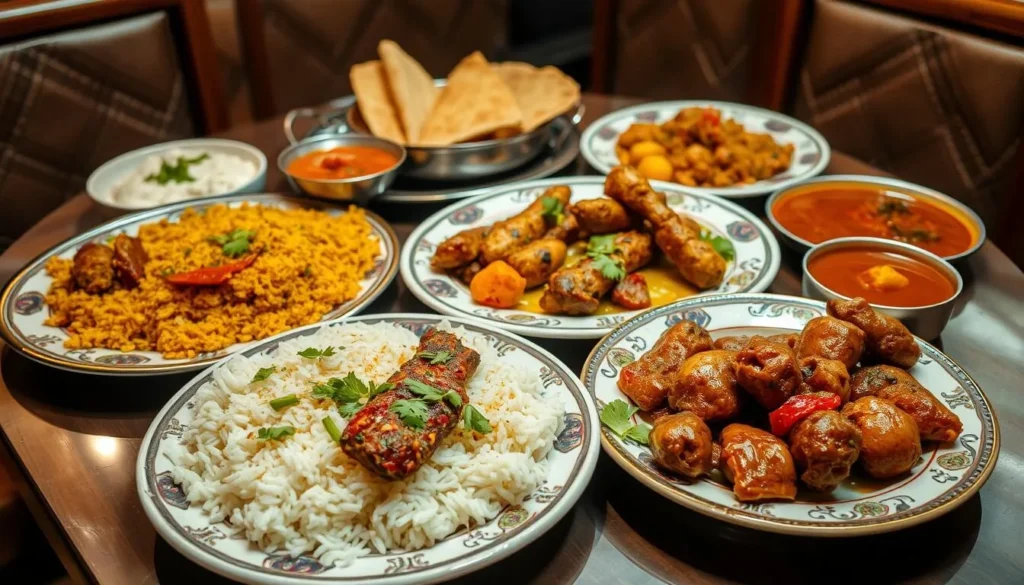
Culinary Experiences
Sialkot offers delicious Punjabi cuisine with some unique local specialties:
- Chappal Kebab – A spicy flat kebab that originated in the region, best enjoyed with naan bread and yogurt sauce
- Sialkoti Pulao – A fragrant rice dish cooked with meat, spices, and sometimes dried fruits
- Paya – A rich soup made from slow-cooked goat or sheep trotters, typically enjoyed for breakfast
- Phirni – A creamy rice pudding dessert flavored with cardamom and topped with pistachios
- Doodh Jalebi – Sweet pretzel-like pastries soaked in milk, a popular evening treat
For an authentic experience, try these dishes at local establishments rather than hotel restaurants. Areas around Kashmiri Bazaar and Paris Road offer numerous small eateries serving traditional food at reasonable prices.
Cultural Immersion
Poetry Gatherings (Mushairas)
Sialkot has a rich literary tradition as the birthplace of Allama Iqbal. If your visit coincides with a poetry gathering, it’s worth attending to experience this important aspect of Pakistani culture. These events are occasionally held at cultural centers and educational institutions.
Cricket Matches
Cricket is Pakistan’s most popular sport, and catching a local match at Sialkot Cricket Ground offers insight into the nation’s sporting passion. The atmosphere during games is energetic and provides a great opportunity to interact with locals united by their love of cricket.
Discover Authentic Sialkot
Experience the unique cultural and industrial heritage of Sialkot with specialized tours led by knowledgeable local guides.
Book Local Experiences
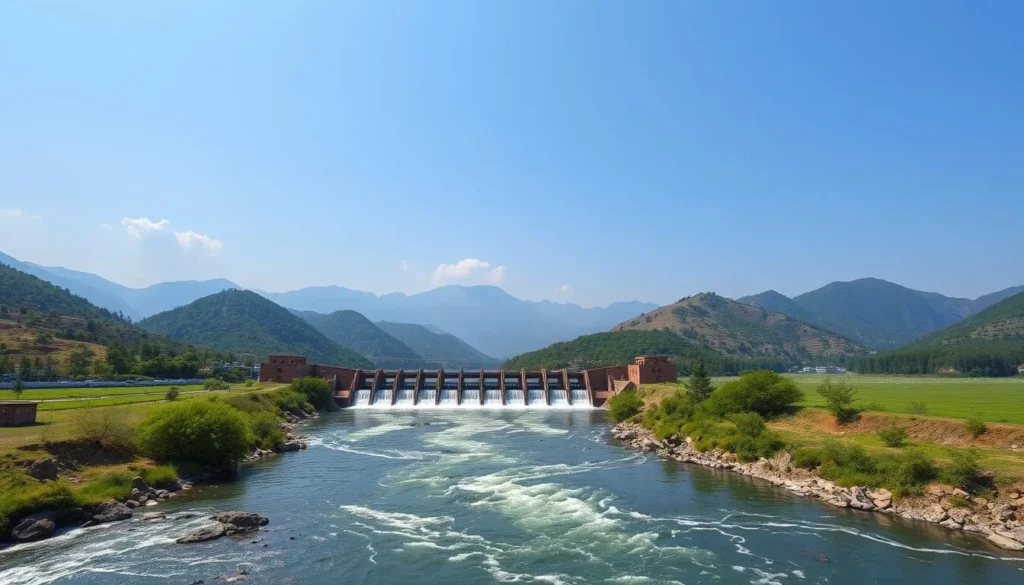
Day Trips from Sialkot
While Sialkot itself offers plenty to explore, several interesting destinations within a few hours’ drive make for excellent day trips. These excursions allow visitors to experience more of Punjab’s diverse attractions.
Nearby Destinations
Marala Headworks (20 km)
This barrage on the Chenab River is not only an important irrigation structure but also a scenic spot and wildlife sanctuary. The wetlands attract numerous migratory birds, making it a paradise for birdwatchers, especially during winter months. The peaceful surroundings and riverside views make it a popular picnic spot for locals and visitors alike.
Chawinda Battlefield (45 km)
History enthusiasts will appreciate visiting the site of the largest tank battle since World War II, which took place during the 1965 Indo-Pakistani War. A memorial called Yadgar-e-Shaheedan commemorates this significant event in Pakistan’s military history. The site offers insights into the region’s complex geopolitical past.
Gujranwala (80 km)
Known as the “City of Wrestlers,” Gujranwala is famous for its wrestling tradition and delicious food. Visit the historic Sheranwala Bagh, explore the old city, and sample local specialties like Gujranwala Chapli Kebab. The city also has connections to Maharaja Ranjit Singh, founder of the Sikh Empire.
Further Afield
Lahore (120 km)
Pakistan’s cultural capital is worth an extended visit, but can be seen as a day trip if time is limited. Key attractions include the UNESCO-listed Lahore Fort, Badshahi Mosque, Shalimar Gardens, and the bustling Anarkali Bazaar. Lahore’s rich Mughal heritage, vibrant arts scene, and renowned cuisine make it a highlight of any visit to Pakistan.
Katas Raj Temples (130 km)
This complex of ancient Hindu temples surrounding a sacred pond is one of Pakistan’s most important Hindu sites. According to legend, the pond was formed from the tears of Shiva as he flew over the area. The temples date back to the 7th-11th centuries and showcase remarkable architecture and religious significance.
Travel Tip: For day trips, consider hiring a car with driver, as this provides the most flexibility and comfort. Public transportation options exist for some destinations but may be less convenient for tourists with limited time. Your hotel can typically arrange transportation services.
When planning day trips, start early to maximize your time at the destination. Traffic can be unpredictable, especially when leaving or returning to Sialkot during rush hours. Bring water, snacks, and sun protection, as facilities at some of the more remote locations may be limited.
Explore Beyond Sialkot
Discover the beautiful surroundings and nearby attractions with comfortable transportation options.
Practical Information for Visitors
Language
Punjabi is the primary language spoken in Sialkot (97% of the population), with specific dialects including Majhi and Dogri. Urdu, Pakistan’s national language, is widely understood, especially in urban areas. English is spoken by educated people and in business circles, particularly in the export-oriented industries. Learning a few basic Urdu or Punjabi phrases can enhance your experience.
Currency
The Pakistani Rupee (PKR) is the local currency. ATMs are available in Sialkot, particularly in the Cantonment area and near major hotels, but it’s advisable to carry some cash, especially when visiting markets or smaller establishments. Major hotels and upscale restaurants may accept credit cards, but most places operate on a cash-only basis.
Communication
Mobile coverage is generally good in Sialkot. International visitors can purchase local SIM cards from providers like Jazz, Telenor, or Zong at the airport or in the city (passport required for registration). Wi-Fi is available in most hotels and some restaurants, though connection speeds may vary. It’s advisable to download maps and translation apps before your trip.
Health and Safety
Medical Facilities
Sialkot has several hospitals and clinics, with Allama Iqbal Memorial Hospital and Combined Military Hospital being among the better-equipped facilities. For minor issues, pharmacies are widely available. It’s recommended to have comprehensive travel insurance that covers medical evacuation, as serious conditions might require treatment in Lahore or Islamabad.
Safety Considerations
Sialkot is generally considered one of the safer cities in Pakistan, with a lower crime rate than many larger urban centers. However, standard travel precautions apply: avoid displaying valuable items, be cautious in crowded areas, and respect local customs. Keep copies of important documents and register with your country’s embassy upon arrival in Pakistan.
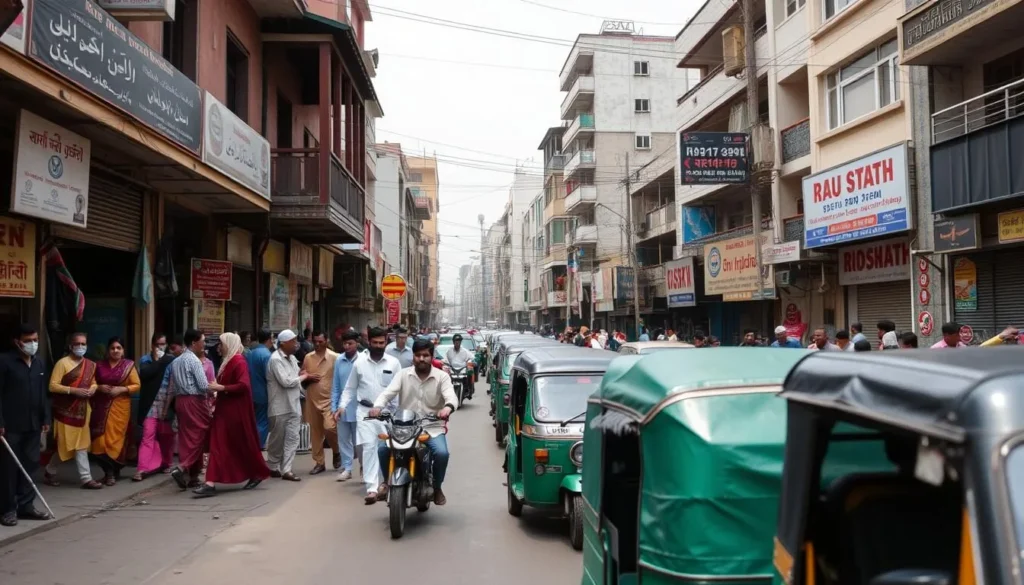
Cultural Etiquette
- Dress Code – Pakistan is a conservative Muslim country. Both men and women should dress modestly, covering shoulders and knees. Women may consider carrying a scarf (dupatta) for visiting religious sites.
- Religious Respect – Be respectful when visiting mosques and shrines. Remove shoes before entering, and women should cover their heads. Non-Muslims may not be permitted to enter certain areas.
- Photography – Always ask permission before photographing people, especially women. Avoid taking pictures of military installations, airports, or government buildings.
- Greetings – The traditional greeting is “Assalamu alaikum” (Peace be upon you). Men typically shake hands with other men but may not initiate physical contact with women. Follow the lead of locals regarding greetings.
- Dining Etiquette – It’s common to eat with the right hand in traditional settings. If invited to a home, bringing a small gift is appreciated. Declining food or drink may be considered impolite.
Important: Alcohol is prohibited in public throughout Pakistan, and its consumption is illegal for Muslims. Non-Muslims can consume alcohol only in certain licensed establishments or with a permit. Public displays of affection between couples are frowned upon and should be avoided.
Emergency Contacts
| Service | Number | Notes |
| Police Emergency | 15 | General emergency police line |
| Ambulance | 1122 | Emergency rescue service |
| Fire Brigade | 16 | Fire emergency services |
| Tourist Police | +92-52-9250410 | Assistance specifically for tourists |
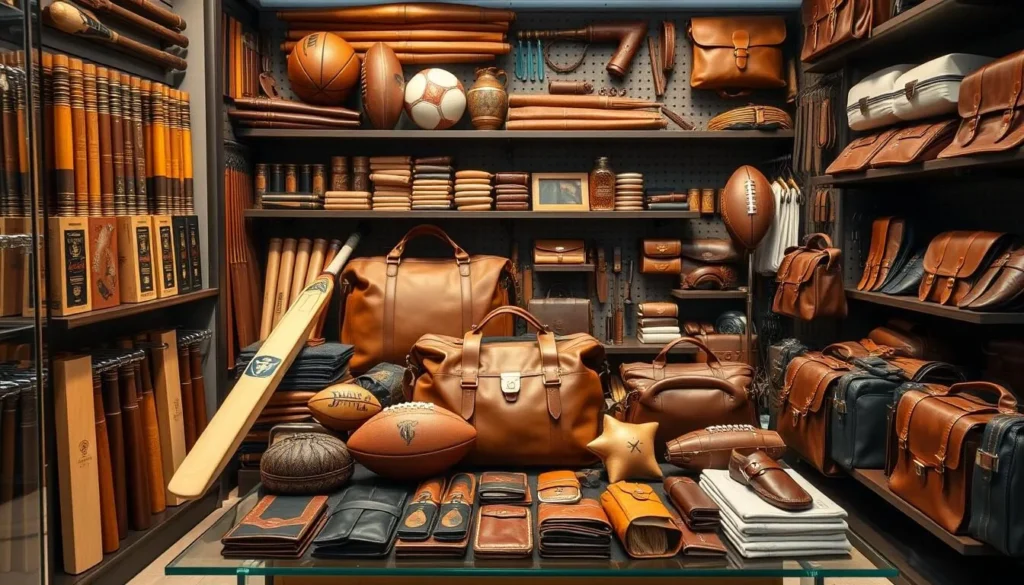
Shopping in Sialkot
Sialkot offers unique shopping opportunities, particularly for items manufactured in its world-renowned industries. Visitors can purchase high-quality goods directly from the source at prices significantly lower than in international markets.
What to Buy
Sports Equipment
Sialkot is famous for producing high-quality sports goods used by professional athletes worldwide. Consider purchasing authentic footballs, cricket bats, hockey sticks, or tennis rackets as souvenirs. Many factories have outlet stores where you can buy directly at wholesale prices. The quality of these items is exceptional, as they’re made to international standards.
Leather Goods
The city’s leather industry produces excellent jackets, bags, wallets, and accessories. Look for items made from genuine leather with quality stitching and finishing. Custom-made leather goods can often be ordered with a quick turnaround time. The craftsmanship reflects generations of expertise in leather working.
Surgical Instruments
While professional-grade surgical tools require proper licensing, visitors can purchase personal care items like manicure sets, tweezers, and other precision instruments. These make unique gifts and showcase the exceptional metalwork Sialkot is known for. The attention to detail in these items is remarkable.
Where to Shop
Traditional Markets
For an authentic shopping experience, explore Sialkot’s traditional bazaars:
- Kashmiri Bazaar – One of the oldest markets, offering textiles, handicrafts, and local foods
- Paris Road – Known for clothing, fabrics, and everyday items
- Urdu Bazaar – A good place to find books, including works by Allama Iqbal
Modern Shopping
For a more contemporary shopping experience:
- Saddar Bazaar – Located in the Cantonment area, offering a mix of traditional and modern goods
- Factory Outlets – Many sports and leather goods manufacturers have direct outlets where you can purchase export-quality items
- Small City Mall – A modern shopping center with branded stores and restaurants
Shopping Tip: Bargaining is expected in traditional markets and with street vendors, but less so in established stores with fixed prices. Start by offering about 60-70% of the initial asking price and negotiate from there. Be respectful and maintain a friendly attitude during negotiations.
Shipping and Customs
If you purchase larger items that are difficult to transport, many shops can arrange international shipping. Be aware of your home country’s customs regulations regarding imported goods, particularly for leather items. Most reputable stores can provide proper documentation for customs purposes.
For valuable purchases, keep receipts and certificates of authenticity. Some items, particularly those made from animal products, may require special permits for import into certain countries.
Bring Home Authentic Souvenirs
Discover unique, high-quality products made in Sialkot’s world-famous manufacturing industries.
Book Shopping Tours
Dining in Sialkot
Sialkot offers a variety of dining options that showcase the rich flavors of Punjabi cuisine. From street food to upscale restaurants, the city provides numerous opportunities to experience authentic Pakistani dishes.
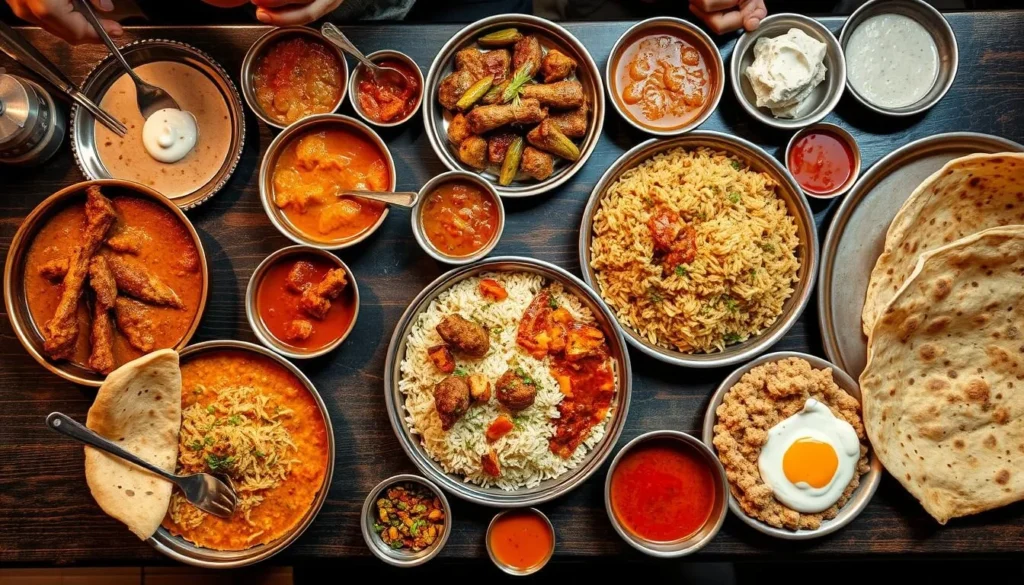
Local Specialties
Don’t miss these authentic dishes during your visit to Sialkot:
- Chappal Kebab – A spicy flat kebab made from minced meat, often served with naan bread and yogurt sauce
- Sialkoti Pulao – A fragrant rice dish cooked with meat, spices, and sometimes dried fruits
- Paya – A rich soup made from slow-cooked goat or sheep trotters, typically enjoyed for breakfast
- Sarson ka Saag – Mustard greens cooked with spices, traditionally served with makki di roti (cornbread)
- Lassi – A yogurt-based drink that comes in sweet or salty varieties, perfect for cooling down in hot weather
- Phirni – A creamy rice pudding dessert flavored with cardamom and topped with pistachios
- Jalebi – Sweet, pretzel-like deep-fried batter soaked in sugar syrup
Dining Options
Street Food
For authentic flavors and local atmosphere, try the street food stalls around Kashmiri Bazaar and Paris Road. These vendors offer everything from kebabs and samosas to sweet treats like jalebi. While hygiene standards vary, stalls with high customer turnover generally serve fresher food. Look for places where locals are eating for the best experience.
Local Restaurants
Mid-range restaurants serving traditional Pakistani cuisine can be found throughout the city. These establishments offer comfortable seating and a wider menu selection than street vendors. Popular areas include the Cantonment district and around Clock Tower. Many restaurants are family-oriented and do not serve alcohol.
Hotel Dining
Higher-end hotels in Sialkot offer restaurants with both Pakistani and international cuisine. These venues typically maintain Western hygiene standards and may be more comfortable for travelers concerned about food safety. While prices are higher than local establishments, the quality and presentation are generally excellent.
Dining Tip: Tap water in Pakistan is not safe for drinking. Stick to bottled water and avoid ice in drinks unless you’re certain it’s made from purified water. Exercise caution with raw vegetables and unpeeled fruits, especially when dining at street food stalls.
Dining Etiquette
When dining in Sialkot, keep these cultural considerations in mind:
- In traditional settings, meals may be eaten while seated on the floor
- It’s customary to eat with the right hand in traditional Pakistani dining
- Washing hands before and after meals is standard practice
- During Ramadan, be respectful by not eating, drinking, or smoking in public during daylight hours
- If invited to a local home for a meal, bringing a small gift (sweets or fruit) is appreciated
- It’s considered polite to try at least a small portion of everything offered
Most restaurants in Sialkot are open from late morning until around 11 PM. Some establishments close briefly in the afternoon, especially during summer months. During Ramadan, restaurant hours change significantly, with many places closed during the day and open late into the night after iftar (breaking of the fast).
Why Sialkot Should Be On Your Travel List
Sialkot offers travelers a rare glimpse into a side of Pakistan that few international visitors experience. This industrial powerhouse combines a rich historical legacy with contemporary manufacturing excellence, creating a destination that defies expectations and rewards the curious traveler.
Sialkot represents the perfect blend of Pakistan’s proud heritage and its entrepreneurial spirit. Where else can you walk through 5,000 years of history in the morning and watch artisans craft equipment for the world’s biggest sporting events in the afternoon?
From exploring the ancient Sialkot Fort to witnessing the meticulous craftsmanship behind world-famous sporting goods, from savoring authentic Punjabi cuisine to shopping for high-quality leather products, Sialkot offers experiences that go beyond the typical tourist trail. The city’s unique position as both a historical center and a global manufacturing hub creates a fascinating contrast that makes for a truly memorable visit.
As Pakistan continues to open its doors wider to international tourism, Sialkot stands ready to welcome visitors with its distinctive blend of industrial innovation, cultural heritage, and traditional Punjabi hospitality. Whether you’re a sports enthusiast curious about where your equipment comes from, a history buff exploring the subcontinent’s rich past, or simply a traveler seeking authentic experiences off the beaten path, Sialkot deserves a place on your travel itinerary.
Start Planning Your Sialkot Adventure
Ready to experience this unique Pakistani city? Begin your journey by finding the best flights, accommodations, and activities.
—
The above is subject to change.
Check back often to TRAVEL.COM for the latest travel tips and deals.
